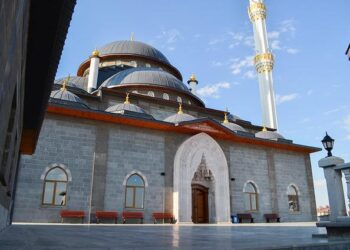The Netherlands has taken a significant step toward the restitution of cultural heritage by officially returning a collection of Benin Bronzes to Nigeria. The artifacts, which were looted during colonial-era expeditions, have long been a point of contention between European museums and African nations seeking the return of their historical treasures. This repatriation, announced by Dutch authorities and reported by Semafor, marks a milestone in ongoing efforts to address the legacy of colonialism and restore cultural patrimony to its rightful owners.
Netherlands Commits to Restitution of Benin Bronzes Strengthening Cultural Ties with Nigeria
The recent agreement between the Netherlands and Nigeria marks a significant milestone in the ongoing efforts to address historical injustices linked to colonial-era artifacts. By returning the Benin Bronzes, the Dutch government demonstrates a strong commitment to cultural restitution and fostering goodwill between the two nations. This restitution not only represents the physical repatriation of invaluable artifacts but also serves as a profound gesture of respect towards Nigeria’s rich heritage and traditional sovereignty.
Key aspects of the restitution initiative include:
- Collaboration between museums and governmental bodies in both countries
- Future plans to organize joint exhibitions and cultural exchanges
- Emphasis on education to promote awareness of Benin’s artistic and historical significance
| Artifact | Origin | Returned By | Year of Return |
|---|---|---|---|
| Bronze Plaque | Benin Kingdom | Netherlands | 2024 |
| Ivory Carving | Benin Kingdom | Netherlands | 2024 |
| Brass Head | Benin Kingdom | Netherlands | 2024 |
This initiative not only elevates cultural diplomacy but also paves the way for future collaborative frameworks, setting a precedent for other countries holding displaced cultural treasures. Experts highlight that such acts of restitution can promote healing, scholarship, and stronger bilateral relationships moving forward.
Historical Significance and Impact of the Return on Nigerian Heritage Preservation
The repatriation of the Benin Bronzes by the Netherlands marks a watershed moment for the preservation of Nigerian heritage. These artifacts, painstakingly crafted centuries ago, represent more than artistic brilliance; they embody the cultural identity and historical narrative of the Edo people. Returning the bronzes reinstates a tangible connection to Nigeria’s past, enabling scholars, artists, and the general public within the country to engage directly with their ancestral legacy. This act acknowledges the significance of rightful ownership and sets a precedent for the restitution of other cultural treasures displaced during colonial times.
Key impacts on heritage preservation include:
- Revitalization of traditional craftsmanship through renewed inspiration and research.
- Strengthening of national pride and cultural unity amid Nigeria’s diverse ethnic landscape.
- Enhancement of local museums and cultural institutions, attracting tourism and educational opportunities.
- Promotion of ethical practices in global art acquisition and museum curation.
| Aspect | Before Repatriation | After Repatriation |
|---|---|---|
| Artifact Accessibility | Limited to foreign museums and private collections | Accessible to Nigerian public and scholars |
| Cultural Representation | Fragmented and often misrepresented | Accurate portrayal rooted in local tradition |
| Heritage Education | Primarily external narratives | Inclusive curricula enriching national identity |
Experts Advise Collaborative Efforts to Ensure Sustainable Management of Returned Artifacts
Leading scholars and cultural heritage professionals emphasize the importance of joint stewardship between the Netherlands and Nigeria to guarantee the long-term preservation and respectful display of the Benin Bronzes. They advocate for an approach that transcends mere repatriation, urging collaborative frameworks that include shared conservation techniques, community engagement, and educational initiatives. By involving local Nigerian experts alongside Dutch curators, both nations can develop innovative strategies that honor the bronzes’ historical significance while adapting to modern museology standards.
Key recommendations from the experts include:
- Capacity-building programs for Nigerian museums to ensure sustainable artifact care
- Joint exhibitions to foster cross-cultural dialogue and awareness globally
- Community-led storytelling to reconnect the bronzes with their indigenous origins and narratives
- Transparent governance structures establishing responsibilities and rights over the artifacts
| Area of Focus | Collaborative Strategy | Expected Outcome |
|---|---|---|
| Conservation | Joint training workshops | Enhanced preservation skills |
| Exhibition | Co-curated global tours | Increased cultural visibility |
| Community | Inclusive storytelling platforms | Stronger cultural identity |
| Governance | Shared custodianship agreements | Clear responsibilities |
To Conclude
The return of the Benin Bronzes from the Netherlands to Nigeria marks a significant milestone in the ongoing global conversation about the restitution of cultural heritage. This gesture not only acknowledges the historical injustices tied to the artifacts’ removal but also strengthens cultural ties between the two nations. As more institutions reconsider the provenance of their collections, the repatriation of these bronzes could pave the way for broader efforts to address colonial-era cultural displacement. The developments reported by Semafor highlight a growing momentum toward reconciliation and respect for the cultural identities of formerly colonized countries.
















